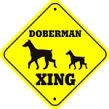| View previous topic :: View next topic |
| Author |
Message |
Rizlah
Key Member

Joined: 28 Aug 2007
Posts: 271
Location: Scotland
|
 Posted: Sun Dec 02, 2007 3:09 pm Post subject: Male royal breeding size Posted: Sun Dec 02, 2007 3:09 pm Post subject: Male royal breeding size |
 |
|
well we had a chat recently about female breeding sizes and well I think the general consensus was somewhere between 1200 and 1500 grams depending upon the individual female.
Well what about males, do you think there is any minimum size/age for males to breed?
Look forward to hearing everyone views on this.
_________________
 |
|
| Back to top |
|
 |
peter
Key Member

Joined: 13 Nov 2005
Posts: 378
|
 Posted: Sun Dec 02, 2007 3:29 pm Post subject: Posted: Sun Dec 02, 2007 3:29 pm Post subject: |
 |
|
| the smallest male i had breed was 450 Grams. I'm happy enough to let males start from 700 grams . other than that i let the males tell me when there ready from there actions |
|
| Back to top |
|
 |
jamie_s
Site Moderator

Joined: 08 Jan 2006
Posts: 1963
|
 Posted: Sun Dec 02, 2007 3:34 pm Post subject: Posted: Sun Dec 02, 2007 3:34 pm Post subject: |
 |
|
ive heard loads of stories about 350 grm type male's breeding but how many breeding's actually came to fruition?i would hate to put a young male into a programme only to find he was just going through the motion's and then for him to totally go off his food and crash and burn and then finish up croakin on me  i like my males to be 750+ grms when i start em breeding i like my males to be 750+ grms when i start em breeding
_________________
www.jamieswordsreptiles.com |
|
| Back to top |
|
 |
angel148
Key Member
Joined: 17 Mar 2007
Posts: 328
Location: Leicester
|
 Posted: Sun Dec 02, 2007 3:36 pm Post subject: Posted: Sun Dec 02, 2007 3:36 pm Post subject: |
 |
|
Males can breed at anything over 4.5 months but I would NOT recommend this. Some larger breeders say 6 months of age and at least 500g. But the mainstream view is 800g+. There is NO set rule though. Would I put a skinny 800g, 15 month old male in over a 600g, 7 month old chunky male, NO. Also remember it depends on the males. I have some that will mate and mate and mate without wanting a break. Others will be with the female a couple of days before they mate so they are always getting a rest. The bottom line in my opinion is condition before breeding, rest and probably the most important to me is if they will continue to feed throughout the breeding season. ALL my males eat and it makes a BIG difference. There is nothing wrong with letting a smaller male have the opportunity to have a couple of goes if he's ready, rested and fed. Too many stupid rules about weight, its the individual that a decision should be based on as well as how he and you maintain him during breeding. Too many hit the 800g with a below par male that refuses to eat and they let him mate for 4 months, madness. Anyway, my rant for the day!!! 
Paul |
|
| Back to top |
|
 |
Rizlah
Key Member

Joined: 28 Aug 2007
Posts: 271
Location: Scotland
|
 Posted: Sun Dec 02, 2007 3:44 pm Post subject: Posted: Sun Dec 02, 2007 3:44 pm Post subject: |
 |
|
good post, like the points about making it individual to the snake.
_________________
 |
|
| Back to top |
|
 |
Scott W
Site Admin

Joined: 15 Apr 2004
Posts: 13355
Location: London, England.
|
 Posted: Sun Dec 02, 2007 5:00 pm Post subject: Posted: Sun Dec 02, 2007 5:00 pm Post subject: |
 |
|
No hard and fast rules at all.
I had several males I bought last year (2006 hatchlings) go off feed and their first winter. I put them in with females and everyone mated many times. I done this for about 3 - 4 weeks then seperated them. They all started feeding great after this. NONE actually sired any clutches, this may of been due to being infertile at that age or just 'missed out' to other males also used. The males were about 500gs+.
The youngest male I know of was 3.5 months old, it sired many clutches with no ill effects (this was a close friend's snake and breedings).
_________________

Please DO NOT pm orders for reptiles, send email instead scott@captivebred.co.uk |
|
| Back to top |
|
 |
Central Scotland Reptiles
CaptiveBred Addict!
Joined: 20 Feb 2007
Posts: 504
Location: Central Scotland
|
 Posted: Mon Dec 03, 2007 3:14 pm Post subject: Posted: Mon Dec 03, 2007 3:14 pm Post subject: |
 |
|
I would echo the previous comments.
For me, the individual animals health and long-term well being is of paramount importance, in fact it should be the only importance. Good animal management is being able to read / interpret his or her own animals.
Just remember that every action has a reaction!!!
_________________
Fraser Gilchrist
Central Scotland Reptiles - "Finding Beauty in the Beasts" |
|
| Back to top |
|
 |
|






